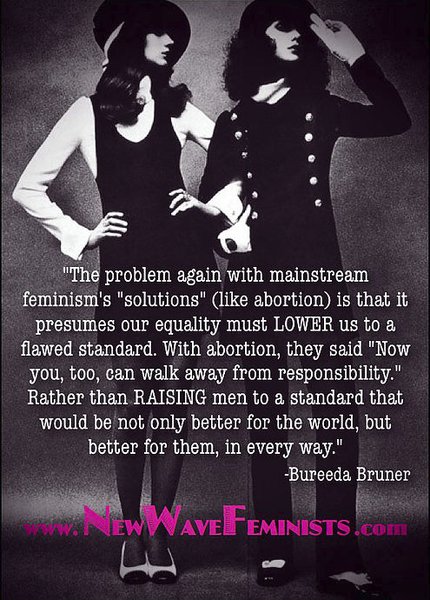I Am Against Feminism
THE MARXIST ORIGINS OF FEMINISM
In his 1884 treatise, The Origin of the Family, Private Property and the State, Karl Marx’s best friend and co-author, Frederich Engels, asserted that the “bourgeois” family with its division of labor—men working, women raising children—was one of the greatest obstacles to the achievement of a socialist society.
Engels argued that this barrier should be dismantled by encouraging women to see themselves as an oppressed class, like exploited factory workers, who must engage in Marxist “class warfare” against their fathers and husbands.
Applying that socialist principle to the intimate relations of the family is even more destructive: women who accept such a principle ceased to see the family as a unit joined by common goals, and instead felt morally justified in seeking their own selfish interests—at the expense not just of their husbands but of their children.
If a woman’s own children can be her enemies, it is no wonder that feminists came to endorse first contraception and then abortion as central requirements for the progress of women in society.
Compare this ideology to this provision of the 1937 Irish Constitution -- one of the greatest Christian inspired, pro-woman, pro-family secular documents of modern times:
1. The State, therefore, guarantees to protect the Family in its constitution and authority, as the necessary basis of social order and as indispensable to the welfare of the Nation and the State.
2. In particular, the State recognises that by her life within the home, woman gives to the State a support without which the common good cannot be achieved.
3. The State shall, therefore, endeavour to ensure that mothers shall not be obliged by economic necessity to engage in labour to the neglect of their duties in the home.
4. The State pledges itself to guard with special care the institution of Marriage, on which the Family is founded, and to protect it against attack





